By Steve Agbota
The Nigerian Shippers’ Council (NSC) on Thursday reiterated that the 2 per cent funding it currently receives from the 7 per cent Port Development Levy (PDL) is not only inadequate to meet the scale of the Council’s statutory responsibilities but also lacks firm legislative backing, leaving the Council’s financial base unstable.
Speaking when the Senate Committee on Marine Transport paid an oversight visit to the Council headquarters in Lagos, the Executive Secretary/Chief Executive Officer of the NSC, Dr Akutah Pius Ukeyima, urged the Senate Committee to accelerate enactment of the Nigerian Port Economic Regulation Act (NIPERA) Bill 2025 into law and champion the Council’s financial independence through the 1 per cent Freight Stabilisation Fee.
On challenges confronting the port economic regulator, he disclosed that while the Council has made progress, challenges remain, particularly in funding and sustaining the independence of the Council.
“At present, the Council relies largely on the 2 per cent from the 7 per cent Port Development Levy (PDL) as its main source of funding. However, this levy is not only inadequate to meet the scale of our statutory responsibilities but also lacks firm legislative backing, leaving the Council’s financial base unstable.
“To address this, we respectfully seek your urgent support in two critical areas: accelerated enactment of the NIPERA Bill into law to consolidate the Council’s mandate, strengthen investor confidence, and ensure effective enforcement of economic regulation; and champion the Council’s financial independence through the 1 per cent Freight Stabilisation Fee,” he said.
According to him, this fee, established under Section 1(3) of 1995 and Section 7(2)(c) of the NSC Act, is not a tax but a statutory service charge for regulatory functions such as tariff monitoring, cost regulation, cargo protection, dispute resolution, and trade facilitation.
However, he stressed that the fee does not conflict with the Nigerian Tax Administration Act (NTA) 2025, adding that the Act harmonises collection but does not abolish legally established service-based revenue streams.
On the contrary, he revealed that this fee complements the unified collection framework, ensuring the Council has sustainable funding while all revenues are duly collected through the Nigeria Revenue Service and remitted into the Consolidated Revenue Fund.
“This model is consistent with global best practice, from Ghana to Kenya to South Africa, and aligns with the WTO Trade Facilitation Agreement, which allows charges proportionate to services rendered. Without this dedicated stream, the Council, and NIPERA when fully operational, risks financial incapacitation, jeopardising both our reform gains and Nigeria’s readiness under AfCFTA,” he added.
“I commend President Bola Ahmed Tinubu, whose Renewed Hope Agenda has provided the vision and political will to reform Nigeria’s Marine and Blue Economy sector. We also salute the Minister of Marine and Blue Economy, Adegboyega Oyetola, for his dynamic leadership, which has guided and supported the Council in repositioning itself as a driver of trade facilitation, regulation, and growth.
“I must specially acknowledge the National Assembly, and in particular this Committee, for your tireless collaboration with the Council. Your historic role in the passage of the Nigerian Port Economic Regulation Act (NIPERA) Bill, 2025, is a milestone that will forever reshape Nigeria’s maritime industry.
In his remarks, the Chairman of the Senate Committee on Marine Transport, Senator Wasiu Sanni Eshinlokun, said that the performance of the Nigerian Shippers’ Council as a port economic regulator and a key driver of efficiency in shipping is central to Nigeria’s economic aspirations.
“The maritime industry, and particularly shipping, is a catalyst for national development. It contributes significantly to job creation, industrial growth, and foreign exchange earnings. Therefore, the performance of the Nigerian Shippers’ Council as a port economic regulator and a key driver of efficiency in shipping is central to Nigeria’s economic aspirations.
“The administration under the leadership of President Bola Ahmed Tinubu has shown commendable commitment to the development of the maritime sector. Through ongoing reforms, policy alignments, and investment in port infrastructure and digitalisation, the Nigerian government has continued to create a conducive environment for shipping services to thrive,” he said.
He said these efforts are geared towards reducing the cost of doing business, enhancing competitiveness, and aligning Nigeria’s maritime industries with international best practices.
“As a committee, we are determined to support these reforms and ensure that the Nigerian Shippers’ Council continues to deliver on its mandate. Our oversight today will afford the opportunity to engage constructively, review progress made, understand the challenges faced, and recommend pragmatic solutions that will enhance service delivery and boost economic growth.
“Let me emphasise that the Senate Committee on Marine Transport remains committed to its constitutional mandate of ensuring accountability and good governance.
“Together with the Nigerian Shippers’ Council and our stakeholders, we shall work to strengthen the shipping sub-sector as a driver of Nigeria’s economic prosperity,” he added.



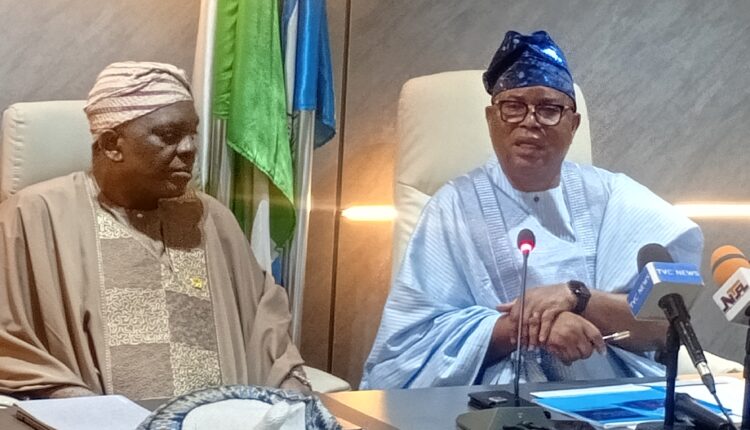

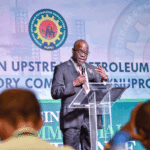


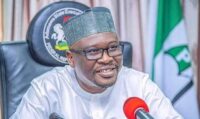

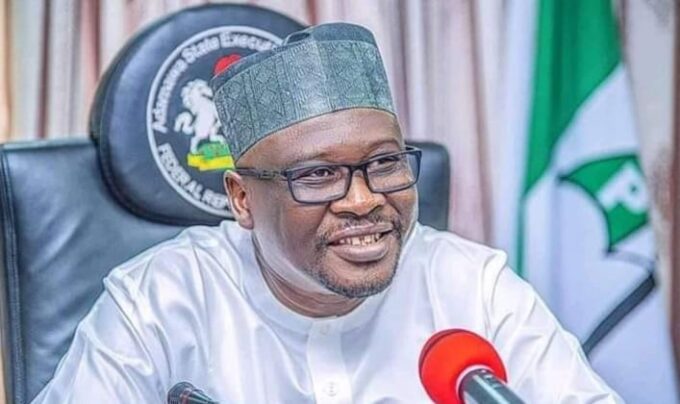
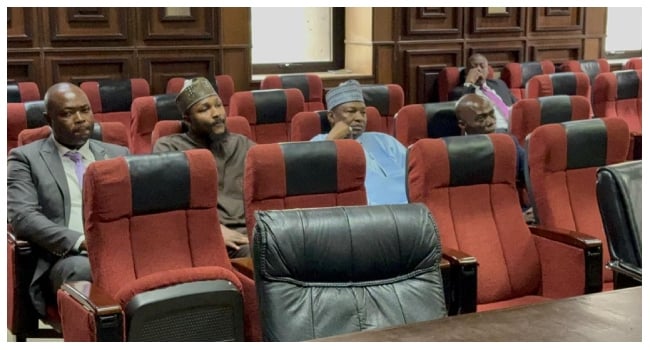


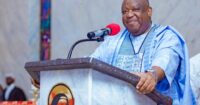
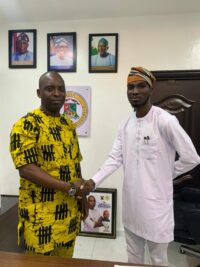

Leave a comment